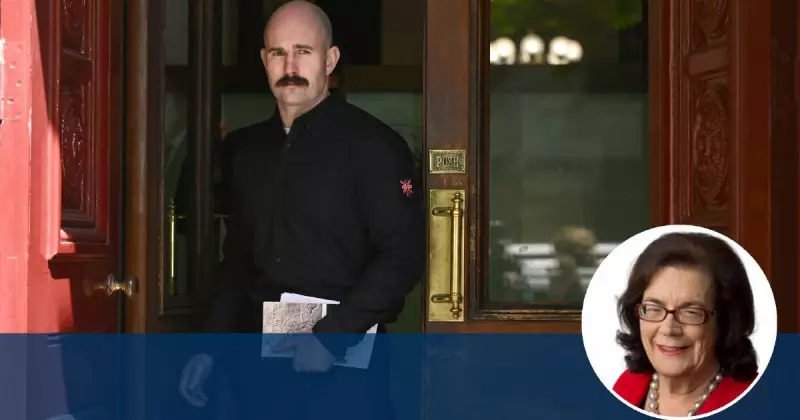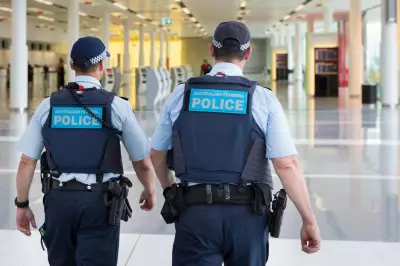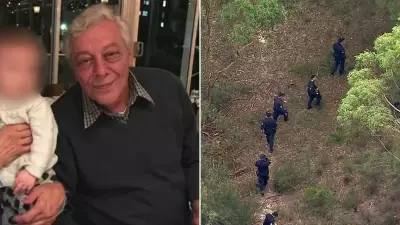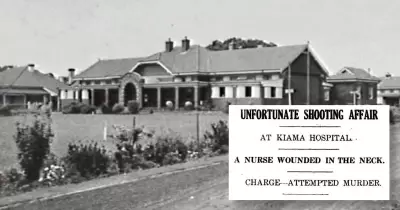
The Rising Threat of Neo-Nazis in Australia
Recent events across Australia have highlighted the growing visibility and organisation of neo-Nazi groups, presenting what experts describe as a 'wicked problem' for governments attempting to balance security concerns with democratic freedoms. The issue came into sharp focus last week when Thomas Sewell, leader of a prominent neo-Nazi group, appeared in a Melbourne court for a bail hearing following jail time related to an attack on an Indigenous camp.
According to reports from the scene, Sewell's supporters created an intimidating presence outside the courthouse, dressed in their signature black clothing. This follows another disturbing incident earlier this month when approximately 60 men in similar attire gathered outside the New South Wales Parliament building in Sydney, displaying anti-Semitic banners and chanting slogans associated with Hitler Youth.
Government Response and Legal Challenges
The federal government has responded with decisive action, placing one of the demonstrators, Matthew Gruter, into immigration detention with plans to deport him back to South Africa. Home Affairs Minister Tony Burke has confirmed he is holding continuous discussions with agencies to ensure federal laws are adequate to address the neo-Nazi threat.
Meanwhile, the NSW Labor government has introduced legislation to strengthen existing laws against Nazi symbolism. NSW Attorney-General Michael Daley stated that while the state already bans Nazi symbols, the recent rally outside Parliament highlighted the need for stronger measures. However, these moves face opposition from civil liberties advocates, with NSW Council for Civil Liberties president Timothy Roberts warning that 'you do not fight fascists with laws that erode civil liberties'.
ASIO boss Mike Burgess recently addressed the threat in a speech, categorising neo-Nazis as 'opportunistic' actors who have strategically exploited broader community concerns about immigration and cost of living to mainstream their movement. Burgess identified the National Socialist Network - which is rebranding as 'White Australia' - as the most significant neo-Nazi group currently operating in the country.
The Political Participation Dilemma
Perhaps the most concerning development is the neo-Nazis' exploration of registering as a political party and running candidates for parliament. Under current laws, they would need just 750 members to register in NSW or 1500 to become a federal party. This raises the alarming possibility, however remote, of neo-Nazi representatives being elected to state upper houses or even the Senate.
Peter Wertheim, co-CEO of the Executive Council of Australian Jewry, describes the prospect of neo-Nazis in parliament as 'intolerable', warning it would put Australia 'on the slippery slope to normalising racism'. He proposes giving effect to Australia's obligations under the International Convention for the Elimination of All Forms of Racial Discrimination to prohibit organisations promoting racial discrimination.
Legal experts are divided on possible solutions. UNSW law professor Rosalind Dixon suggests electoral registration laws should be revised to give electoral commissions 'express power to ban parties that espouse racial hate and vilification'. However, she acknowledges this would require robust judicial oversight to meet constitutional requirements concerning political communication rights.
Liberal frontbencher Julian Leeser has called for parliament's Joint Standing Committee on Electoral Matters to examine whether restrictions on neo-Nazi political participation are possible, suggesting that previous High Court cases indicate a legal counterweight could be found to the implied right of political communication.
A Complex Balancing Act
The challenge facing Australian authorities represents what political scientists term a 'wicked problem' - one with no simple solutions. While stronger laws against hate speech have been introduced following recent tensions related to the Gaza conflict, there are concerns about unintended consequences.
Driving extremist groups underground could potentially make them more attractive to disaffected individuals and harder for security agencies to monitor. The neo-Nazis specifically target feelings of alienation within certain community segments, and heavy-handed suppression could inadvertently create martyrs.
Ultimately, while legal measures have their place, many experts suggest that the most effective long-term response lies in promoting positive social cohesion measures within communities. However, as the recent demonstrations have shown, this represents a long-term solution to what has become an immediate and visible problem requiring urgent attention from all levels of Australian government.






